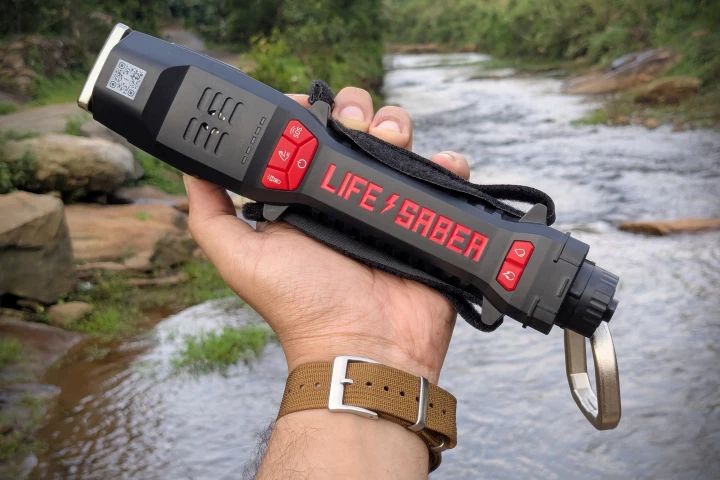With lung cancer survival rates greatly improved by early detection, we've seen a number of efforts to develop a better way to detect the disease in its early stages. Various breath test devices have been developed by a number of companies around the world, and now a team from the University of Huddersfield in the UK plans to trial such a device to identify lung cancer in pharmacies.
Previous studies have already shown that carbon-based sensors embedded with gold nanoparticles and even dogs can detect molecules in the breath indicating the presence of the disease in the lungs.
According to Dr Rachel Airley, these molecules, which consist of "genes, proteins, fragments of cells, secretions and chemicals produced by the metabolism of living tissue with the disease" form a kind of chemical and biological signature. Using breath testing devices, such as the RTube, which is marketed as a research tool for respiratory diseases, Dr Airley developed a project to define a lung cancer "biomarker signature" that is detectable in breath.
"When you get certain chemicals in someone’s breath, that can be a sign that there is early malignancy," says Dr Airley. "We are looking to be able to distinguish between patients with early lung cancer and patients who have maybe got bronchitis, emphysema or non-malignant smoking related disease... or who have maybe just got a cough."
The goal of the project is to validate the signature in a large number of patients to ensure it can reliably distinguish between lung cancer and non-cancerous lung disease. Dr Airley told us that this will require tracking the progress of patients for up to five years to see if the disease develops and can be linked back to a signature picked up in the patient's breath at the beginning of the project.
The project has secured £105,000 (US$170,000) in funding from the SG Court Pharmacy Group with the University of Huddersfield providing matching funding. The SG that operates a chain of pharmacies in the South East of England. It is in these pharmacies that initial trials of the technology will be carried out. Dr Airley stresses that the trial is to test the feasibility of the pharmacy environment for such a test and to ensure the quality of the test samples obtained in this setting are good enough to pick up the signature.
"There are 12,000 community pharmacies in Britain and there is a big move for them to get involved in primary diagnostics, because people visit their pharmacies not just when they are ill but when they are well," says Dr Airley. "A pharmacy is a lot less scary than a doctor’s surgery."
The researchers envision that people visiting their local pharmacy for smoking cessation medication or advice will be invited to take a quick test, with the goal of catching the disease before the patients start to experience symptoms. Once symptoms present, the disease is usually at an advanced stage and it is often too late for effective treatment.
Dr Airley says her team is about to start collecting breath samples from healthy volunteers and patients with known disease as a reference point and hope to start the pharmacy trials within two years. If all goes well, she says it will be at least five years before the test is widely available.
Source: University of Huddersfield
Update (Dec. 18, 2013): This story initially suggested Dr Airley and her team were developing a lung cancer breathalyzer. They are actually looking to identify the signature to indicate lung cancer in existing breath test devices. The article was updated to reflect this.




